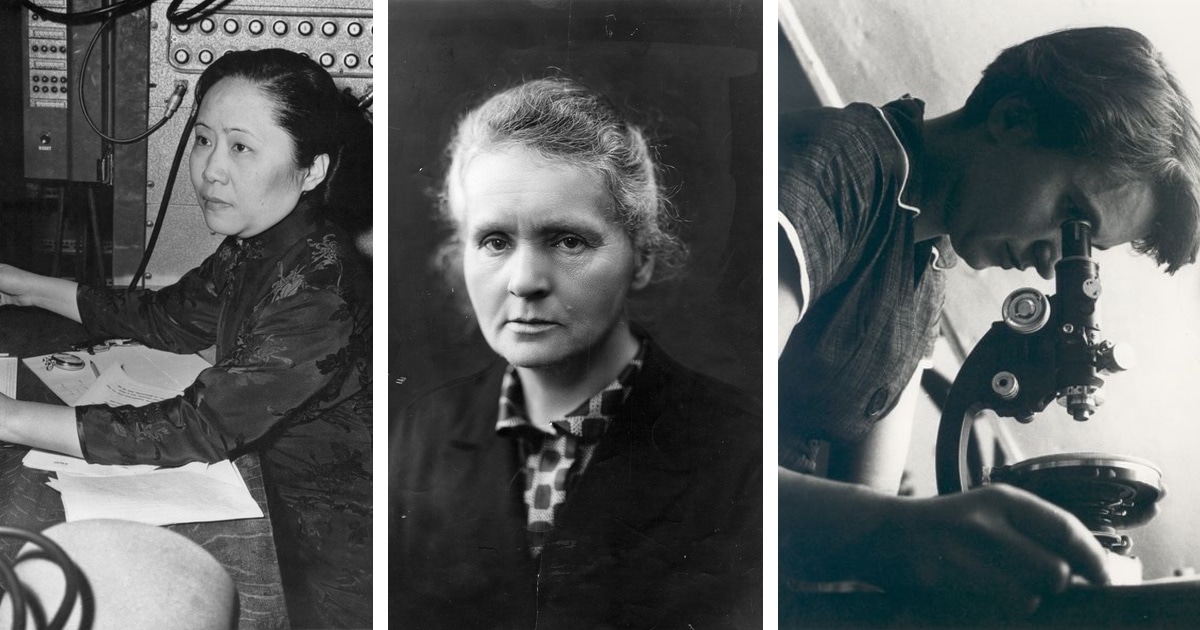You are a scientist. You are very famous. You have made a lot of discoveries and innovations in your field. Your name is known worldwide, and people talk about you as if they have known you all their lives!
But what did it take to become such an outstanding scientist? What was life like for the person who discovered X or Y, or invented Z? What was it like when they were growing up?
Section: In this article we will take you on a journey through the early years of some famous scientists and see how their families made ends meet.
We will find out where they lived, how much money could be earned by those days and what kind of conditions existed at home for them during these years.
Section: So let’s get started!
10. Albert Einstein
Albert Einstein was one of the famous theoretical physicists of German origin. Albert Einstein developed the general theory of relativity, which is one of the two pillars of modern physics.
He is best known for his mass-energy equivalence formula E = mc2 (energy equals mass times the speed of light squared).
He was also a naturalized US citizen and became an American citizen in 1940. His first name was born in Ulm, Germany on 14 March 1879.
His father was a salesman and his mother was a musician; he had four younger siblings: Hermann (1883), Elsa (1887), Eduard (1889) and Conrad (1893).
He did not like school as much as others did but still managed to pass his high school exams when he entered college at age 17 with some help from friends such as Max Planck who later became Chancellor of Germany’s Science Academy after World War II ended
His father wanted him to go into the family business but he decided on studying physics and mathematics at the Swiss Federal Polytechnic School in Zurich. He graduated in 1900 with a diploma in mechanical engineering.
In 1901, at the age of 22, he received a doctorate in physics from the University of Zurich. He became a Swiss citizen in 1900 and in 1902 he married his first wife Mileva Maric, who was also a physicist.
They had two children together, but their marriage lasted only until 1919 when Einstein divorced her and remarried.
9. Galileo Galilei
Galileo Galilei was a famous Italian astronomer, physicist, engineer, philosopher and mathematician who also played an important role and contributed to the scientific revolution.
He is often regarded as the father of observational astronomy and the father of modern physics. He published his first work at 15 years old under the pseudonym of “Philoponus” (meaning “lover of wisdom”).
Galileo was an early advocate for experimental proof over theoretical reasoning. His results were not accepted by his contemporaries until many years later when they had been verified by other famous scientists.
Galileo was a major figure in the scientific revolution, which is generally considered to have begun in the 16th century.
He worked at a time when there was great conflict between science and religion, but he did not see it as an inherent conflict; rather, he believed it was caused by the way that people interpreted Christianity.
8. Sir Isaac Newton
Isaac Newton was born in 1642, to a poor family. His father was a farmer and his mother died when he was still young. He had to work hard to help his family and at the age of 10, he had already started working as an usher at a school in Grantham.
Newton’s works on mechanics led him to other fields such as astronomy and optics, mathematics etc., which eventually became very popular among scientists around the world today.
Because they are applicable for everyday life situations – like how we use our smartphones or even how we communicate with others via social media platforms like Facebook or Twitter!
Newton was also a very religious man, who believed that God created everything in the universe. He was an alchemist and he spent most of his time trying to find the formula for turning base metals into gold.
However, his biggest contribution to science was the law of gravitation. This law states that every object in the universe attracts every other object by a force that is directly proportional to the product of their masses and inversely proportional to the square of their distance.
7. Alexander Fleming
Alexander Fleming was born in Scotland to a poor family, who were not even able to afford enough food for their children.
Fleming was a Scottish biologist and pharmacologist who discovered penicillin in 1928. He received the Nobel Prize in Medicine in 1945 for this discovery.
His father died when he was just six years old, leaving him with no money nor resources to study further education at school or university level.
Fleming was born in Scotland, but he later moved to London. He studied at the University of London and graduated with a degree in medicine in 1906.
6. Jonas Salk
Jonas Salk was born on October 28, 1914 in New York, an American city. He was born to Jewish parents Dora and David Salk. His father was a rabbi and his mother ran a small grocery store in the Bronx where they lived with their three children: Jonas, Lee (his brother) and David.
His parents were very religious and Jonas had a strict upbringing. He was not allowed to play with other children or go to school dances. His father encouraged him to study hard and become a doctor.
Jonas was a good student and he attended the City College of New York, where he majored in chemistry. He later went on to earn his medical degree from New York University School of Medicine.
5. Stephen Hawking
Stephen Hawking was born on January 8, 1942. He was born in Oxford, England and the youngest of two children. His father was a medical researcher and his mother was a philosophy student.
Hawking attended St Albans School for boys where he met his lifelong friend and colleague Roger Penrose.
They both went on to study physics at Oxford University where they took part in student competitions together with other future scientists such as Richard Feynman (Nobel Prize winner) and Anthony Leggett (Nobel laureate).
4. Nicolaus Copernicus
Nicolaus Copernicus was born in 1473 in Turin, a city in Poland. He was a Polish astronomer who developed the heliocentric theory of the universe. His work transformed astronomy and the world, and he is considered to be one of the most important scientists in history.
Copernicus’ ideas were put forward by him during his life as part of his book On The Revolutions Of Heavenly Spheres (De Revolutionibus) which was published posthumously after his death in 1543 when he died at age 70 years old.
In his book, Copernicus put forward the idea that the Earth was not the center of the universe. He argued that it instead revolved around the Sun along with other planets.
And that this movement also explained why objects on Earth seemed to move in an annual cycle around a stationary point.
The heliocentric theory of the universe was not immediately accepted by many people at first as it contradicted long-held religious beliefs about God’s position in relation to humans on Earth.
3. Alfred Nobel
Alfred Nobel was a Swedish chemist, engineer, innovator and arms manufacturer. He invented dynamite and other high explosives which he used for industrial purposes.
He died in 1896 and left much of his wealth to establish the Nobel Prizes in Physics, Chemistry and Physiology or Medicine.
The Nobel Prize is awarded annually to individuals who have made an outstanding contribution to humanity in the fields of Chemistry, Physics, Physiology or Medicine.
The award is considered one of the highest honors in science and often attracts controversy due to its subjective nature.
The Nobel Prize in Physiology or Medicine is not just a scientific award but also an important recognition of the work done by scientists and doctors. It has helped to improve the quality of life for millions of people around the world.
2. James Clerk Maxwell
James Clerk Maxwell was born on June 13, 1831 in Edinburgh, a city in Scotland. His father was a man of modest means and his mother a pious woman of great character.
At an early age Maxwell showed an interest in mathematics and physics, but his education was limited to what he could learn from his father or tutors.
Maxwell’s most famous work is the theory of electromagnetism which describes how electric current flows through wires. This theory has been used to explain many phenomena like radio waves or light emitting diodes (LEDs).
Maxwell’s work on electromagnetism was so influential that it became known as Maxwell’s equations. He also made important contributions to other areas of physics, such as thermodynamics and statistical mechanics.
1. Wolfgang Amadeus Mozart.
Wolfgang Amadeus Mozart was born on January 27, 1756 in Salzburg and was a very good singer and composer.
Mozart’s family had little money so he began to work at an early age as a psalm singer for church choirs in Vienna. At the age of 11, he started composing symphonies for his own ensemble which included his sister Nannerl (who later became famous as an opera singer).
At the age of 21, Mozart married Constanze Weber who was an excellent singer and musician. In 1782, he accepted a post as court musician in Vienna.





